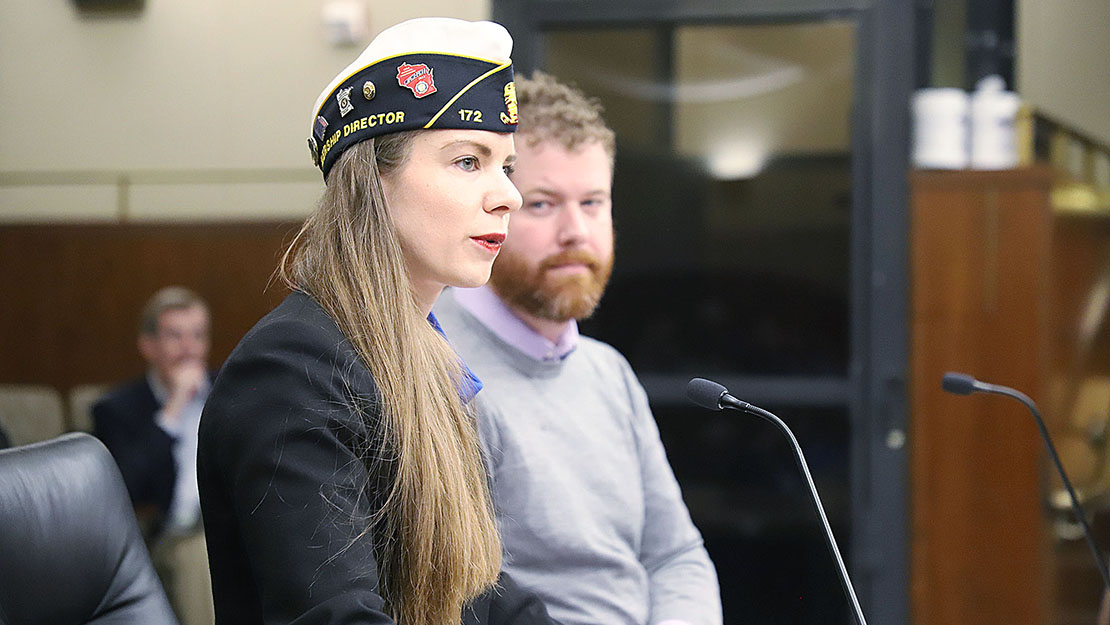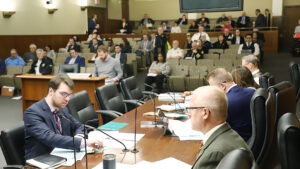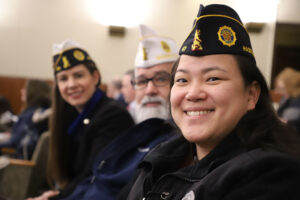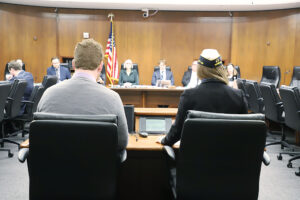Sports betting bill provides tax relief for charitable gambling

ST. PAUL — The American Legion Department of Minnesota, Allied Charities of Minnesota and the Minnesota Indian Gaming Association all are in support of a sports betting bill that would provide historic tax relief for charitable gambling.
The measure also allows posts to put more dollars from gambling proceeds toward maintenance of their building.

In the House, the bill is HF2000, and in the Senate, it is SF1949. It is authored by state Rep. Zack Stephenson of Coon Rapids. Charities across Minnesota have been asking for tax relief for 20 years.
Stephenson testified at a hearing on Thursday, March 21, before the House State & Local Government Finance & Policy Committee on behalf of the amendment to add the tax cuts for charitable gambling to the sports betting bill. The state, he said, will be able to pay for the tax cuts through increased revenue from sports betting.
Stephenson was asked whether the tax relief will restore losses from electronic pulltabs (e-tabs) losing certain features —free plays, bonus games and open-all buttons — in the 2023 session to begin in 2025.
He said he disagrees whether the game changes or any losses will be as bad as purported. He noted revenue from pulltabs and e-tabs in Minnesota is split 50/50.

“This is a very good thing for the charities. They will be in a better position than they were before last year,” Stephenson said.
He fielded several questions related to horse racing in Minnesota. The committee approved his charitable gambling amendment on an 8-4 vote. The American Legion avoids partisanship, but it is worth noting the vote was not down party lines.
Some committee members sought another amendment friendly to horse tracks, but it failed. The bill gives licenses to the tribal casinos for the operation of sports betting, but it does not provide the means for the state’s two horse racing tracks to conduct sports betting.
American Legion Department of Minnesota Legislative Chairwoman Kristy Janigo told the committee the Legion supports HF2000. She described how 193 posts and units have gambling licenses and tax cuts will help them in their mission, with things like honor guards, youth sports, suicide prevention, providing stop-gap funding for veterans in need, food shelves, fairs, fireworks, international sister-city programs, fire departments, schools, parks and more.
“Never before have we seen this level of tax cuts,” Janigo said.
The provisions for making repairs or replacements to posts is necessary to prevent more veteran posts from closing in Minnesota, she said.

Gambling managers will want to know what the new proposed tax rates are. Taxes are paid monthly, and the rate is based on cumulative net receipts. As the months go by, the taxes are higher. Many urban organizations with busy bars zoom past the first three levels in the first or second month.
The present thresholds are:
$87,500 and under: 8 percent
$87,501 to $122,500: $7,000 plus 17 percent
$122,501-$157-500: $12,950 plus 25 percent
$157,501: $21,700 plus 33.5 percent
For the year between July 2025 and June 2026, the sports gambling bill lowers the percentages to 5.5, 15, 23 and 32.5 respectively.
For the year between July 2026 and June 2027, the bill lowers them to 4, 13, 20 and 28.5.
Finally, for July 2027 and beyond, the bill lowers them to 3, 10, 18 and 26.
For post improvement, the expenditure is limited to 50 percent of profits from the previous fiscal year, allowing them to carry forward unused allowances (i.e.: savings) for two years to assist in the cost of major items, like a roof. They must identify the project to the state. The project must be within the existing building, not for a new building or expansion. It does not matter which part of the building is bar, restaurant, banquet, gambling, restrooms, offices or exterior.
Andy Platto is the executive director of the Minnesota Indian Gaming Association, which represents nine tribes. He spoke in support of the bill, which allows the tribes to run sports betting in Minnesota.

He thanked the veterans organizations and Allied Charities of Minnesota for their good-faith dialogue.
Speaking for the bill was Patrick Gibbs of the Coalition for Fantasy Sports.
“We have more fantasy sports players per capita than any other state in the country,” he said.
Stephenson said sports betting in Minnesota is a big issue that needs state supervision.
“Just because sports betting is illegal in Minnesota, it doesn’t mean it doesn’t happen in Minnesota,” he told the committee.
The state rep told how it is easy to use an offshore website to bet on sports. The downside is there is no consumer protection, no taxes, nothing.
“The right approach is to regulate it, not stick our head in the sand,” Stephenson said.
The committee moved to send the bill as amended to the Tax Committee.




